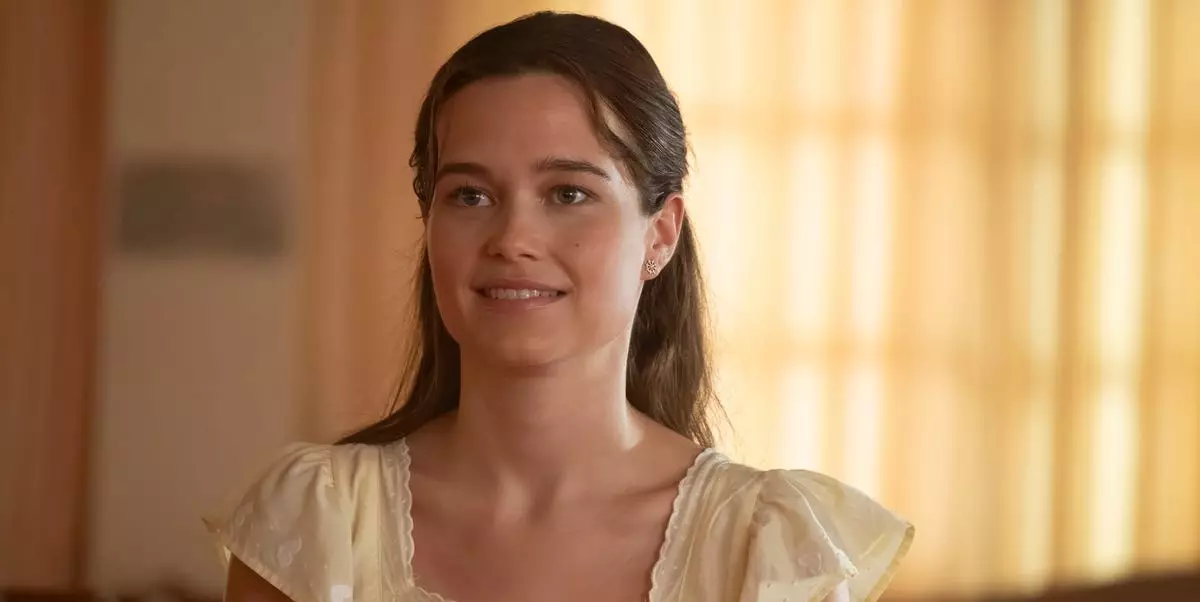The third season finale of *The White Lotus* brought viewers a rich tapestry of character evolution, most strikingly seen through Piper Ratliff, portrayed by Sarah Catherine Hook. From her initial portrayal as a seemingly simple teenager struggling with her identity, Piper’s arc culminates in a profound moment of self-discovery during her stay with Buddhist monks in Thailand. This experience serves as a catalyst for Piper to confront her own materialism and reevaluate her ambitions and desires. By weaving Buddhism into her character study, show creator Mike White forces viewers to grapple with essential questions about the embodiment of spiritual ideals versus the pursuit of sensual experiences.
Piper’s enlightenment, though significant, raises a paradox: is it liberation or self-imposed imprisonment? Her contemplative stay at the monastery initially suggests a serene retreat from a world filled with consumerism. Yet the reality is more nuanced. White’s depiction of her struggles is particularly compelling; he emphasizes that the magnetism of material wants doesn’t vanish simply through the renunciation of desires, suggesting instead that fear underpins the retreat to a monk’s life.
The Intricacies of Relationships
Amidst Piper’s transformation, the dynamic with her brother Saxon (Patrick Schwarzenegger) adds another layer to the narrative. Initially showcased as a jock fixated on the physical pleasures of life, Saxon undergoes a curious transition toward spirituality, ignited by his encounter with Chelsea. This reversal of values between the siblings is noteworthy and underlines a complex dance between carnal desire and spiritual awakening. Their dialogues serve as philosophical battlegrounds where the contrasting views on life’s pleasures emerge.
White’s exploration of these sibling dynamics subtly criticizes contemporary attitudes toward sexuality and spirituality. It challenges the simplistic notion that one can fully escape earthly desires by merely adopting a disciplined mindset. Saxon’s playful dismissal of Piper’s aversion to sexuality means much more than mere brotherly teasing; it unveils a deeper commentary on the human experience and the importance of embracing life’s pleasures realistically rather than shamefully. After all, what good is an awakening if it leads to crippling fear of engaging with the world?
The Deleted Scenes and Their Significance
In a revealing exploration of the show’s creative process, White disclosed that Piper’s character was originally slated to have a prominent sexual encounter with Zion, Belinda’s son. Although this scene did not make the final cut, the implications of its inclusion and removal are rich for analysis. White himself acknowledged that it might have felt tonally dissonant amidst the episode’s broader themes. Still, the choice to delete this moment speaks volumes about the delicate balancing act of addressing coming-of-age narratives without trivializing them.
The decision to depict Piper losing her virginity signifies more than a physical act; it represents a pivotal reclamation of agency and self-acceptance. The contrast here between the spiritual pursuits in the monastery and the tangible, messy real-world experiences illustrates the dichotomy many young adults face. The very concept of intimacy is treated as a transaction fraught with emotional complexity, a notion encapsulated in the brief glimpse of Piper’s changing appearance—a clear transformation that goes beyond mere aesthetics.
A Reflection in the Final Shot
Ultimately, the final shot captures the siblings on a boat, a visual metaphor for their journey through the stormy waters of familial bonds and personal growth. Piper’s relaxed demeanor, complemented by relaxed hair and a sense of clarity, signifies her step into authenticity. White’s comment about Piper contemplating her experiences prior to the climax of the series resonates with viewers who have grappled with their own coming-of-age narratives. This significant emotional arch doesn’t just signify her coming into womanhood; it illustrates the sometimes turbulent, always dynamic exploration of human desire and psychological introspection.
In the end, *The White Lotus* delivers a poignant narrative that dives into the intricacies of character evolution, weaving together threads of spirituality, desire, and self-discovery. It offers viewers a profound exploration of what it means to navigate the complicated waters of life—a testament to the showwriter’s intricate understanding of the human psyche and societal expectations.

